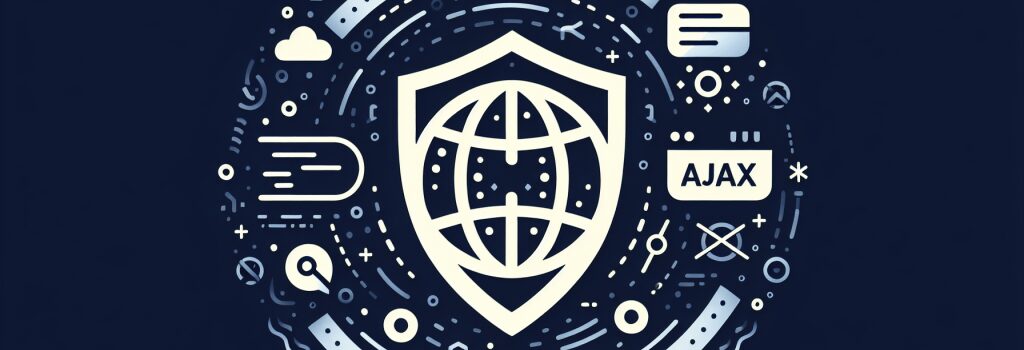A Deep Dive into AJAX Security: Protecting Your Web Applications

Introduction to AJAX Security
Asynchronous JavaScript and XML (AJAX) has emerged as a cornerstone technology in the development of modern web applications, enabling seamless interactions between the user and the server without the need for a page refresh. However, with its widespread use, AJAX has also become a target for various security threats. In this comprehensive guide, we will explore the intricacies of AJAX security and provide essential strategies to protect your web applications from potential vulnerabilities.
Understanding AJAX Security Risks
Cross-Site Scripting (XSS)
One of the primary security risks associated with AJAX is Cross-Site Scripting (XSS). XSS attacks occur when an attacker injects malicious scripts into a webpage viewed by other users. These scripts can steal user data, such as cookies and session tokens, leading to unauthorized access to user accounts.
Cross-Site Request Forgery (CSRF)
Cross-Site Request Forgery (CSRF) is another significant threat to AJAX-based applications. CSRF attacks trick the user into executing unwanted actions on a web application in which they’re authenticated. This can lead to unauthorized changes in user settings or data theft.
Insecure Data Transmission
AJAX applications often transmit data between the client and server. If this data transmission is not properly secured, it can be intercepted by attackers, leading to data breaches.
Best Practices for Enhancing AJAX Security
Ensuring the security of your AJAX applications requires implementing a set of best practices that can mitigate potential threats.Validate User Input
Always validate and sanitize user input on both the client and server sides to prevent XSS attacks. Use regular expressions to ensure that the input matches expected patterns and remove any script tags or malicious code.
Implement CORS Policy
Cross-Origin Resource Sharing (CORS) is a security feature that allows or restricts resources on a web page to be requested from another domain outside the domain from which the resource originated. Implementing a strict CORS policy can help prevent unwanted cross-domain requests, protecting your application against CSRF attacks.
Use HTTPS
Encrypt data transmission between the client and server using Hypertext Transfer Protocol Secure (HTTPS). This prevents attackers from intercepting and reading the data, protecting sensitive information from being stolen.
Utilize Anti-CSRF Tokens
To defend against CSRF attacks, use anti-CSRF tokens in your AJAX requests. These tokens ensure that the request is coming from the authenticated user and not from an attacker.
Content Security Policy (CSP)
Implement a Content Security Policy (CSP) to specify which dynamic resources are allowed to load, effectively preventing XSS attacks by blocking malicious scripts from executing.


